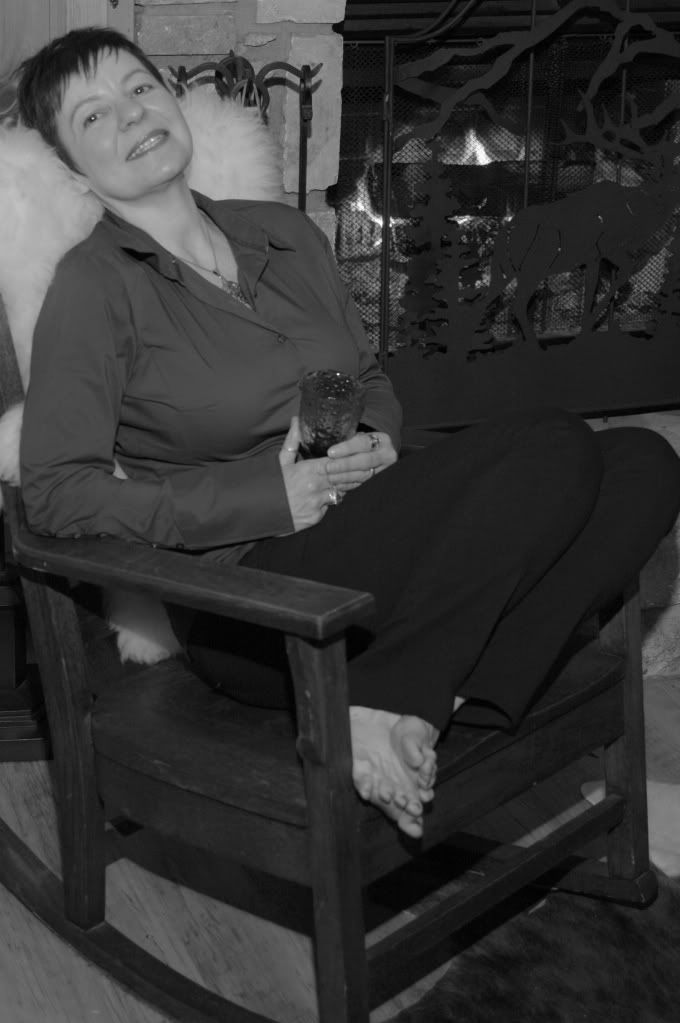 I was thinking about the “write what you know” thing. Sometimes people think it means to write what you have experienced in a tangible way. It can be, of course. It can also be what you empathize, which is still “what you experience,” but in an indirect kind of way.
I was thinking about the “write what you know” thing. Sometimes people think it means to write what you have experienced in a tangible way. It can be, of course. It can also be what you empathize, which is still “what you experience,” but in an indirect kind of way.
Years back, I went by a friend’s house to visit her, while on my way to somewhere I don’t recall. I was dressed nicely, had on make-up, et cetera. I was as I am now: Healthy as the clichéd horse. My friend, however, had cancer. Her hair was falling out. She was pale and tired. I brought something to her and we chatted a while.
But what I want to focus on was the moment I stepped into the door. I walked in, smiling and strong. I walked in with all this HEALTH surrounding me. My pinked cheeks, my sturdy body, my clean-and-free-from-cancer insides. I walked into her house and she sat in her chair with cancer eating at her, what was left of her hair and her partially bald scalp showing through a little from her scarf, her pallid complexion.
What hit me with a sudden ‘oh,’ wasn’t only when she said something to the effect, “You look so nice,” and her tone was wistful. Before she said a word, it was the look in her eyes. Her demeanor said, “I want to be healthy again. I want to be strong again. I want to have on my cute clothes again. I want my hair back! I want this damn cancer out of my body RIGHT NOW! I want to be ME again.” And maybe even, “I’m glad my friend is here, but . . .” But, she’s making me feel sicker. But, she’s making me feel ugly. But, she’s making me feel hairless and sick and pale and pukey and weak.
For that moment before we chatted and were just the friends we were, I’d put myself in her place (and maybe she in mine)—what I thought I would feel if I were sitting in that chair and she had come breezing in with all that gawdamm Health I used to feel and wanted to feel again—whether I’d hit it on the nail isn’t important for the purposes of things from a “writer’s perspective.” What matters is—
mine)—what I thought I would feel if I were sitting in that chair and she had come breezing in with all that gawdamm Health I used to feel and wanted to feel again—whether I’d hit it on the nail isn’t important for the purposes of things from a “writer’s perspective.” What matters is—
Empathy.
I could sit down now and remember that moment of clarity. That “look” I saw in my friend’s eyes. The feeling I suddenly had that made me feel as if we could so easily trade places. The feeling that somehow I made her just a little sad or uncomfortable or maybe even a bit envious of my good health—for why should she be sick and I be healthy? Who or what decides these things? In “writing what I know” I can also use that moment of recognition to write something from my friend’s perspective.
Will I get it exactly right, will I know everything she thought or felt? No way, but that one moment of that one flash in her eyes, that sound of her voice, the energy charged in the room and the energy wished for, the sickness and the health, all of it I can recall. And from that could come a story written from “what I know.” Empathy. Paying attention. A knowing. A guessing. A learning. A reaching into and out of. I could take what I’d think I’d be feeling and pass it onto her (on to my character).
Sometimes that’s what Writing What You Know means.
By the way, my friend is fine now. Healthy and feeling wonderful. Pinked cheeks and shiny hair. No one would ever have to know, except her, and me, and all the future characters who may come.

17 Responses to “WRITE WHAT YOU KNOW”